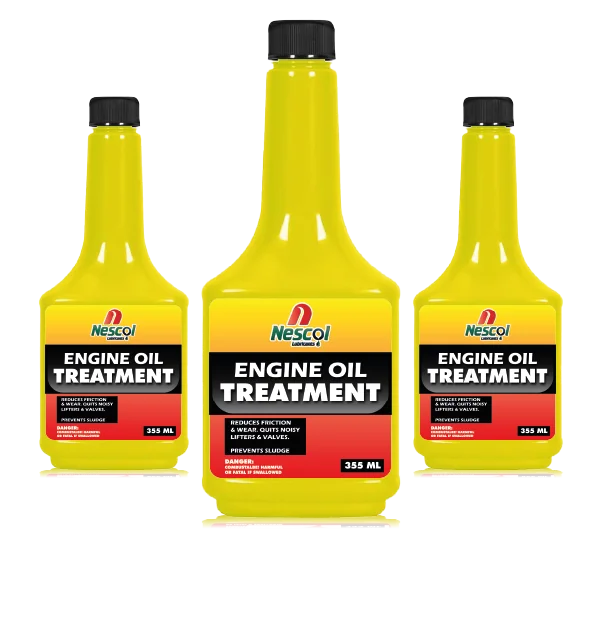When and Why to Use Engine Oil Treatment in Your Vehicle
Maintaining your vehicle’s engine is crucial for its longevity and performance. One often overlooked aspect of engine care is the use of engine oil treatments. These treatments offer numerous benefits that go beyond the capabilities of standard engine oil, helping to keep your vehicle running smoothly and efficiently.
Engine oil treatments are specially formulated additives that enhance the properties of engine oil, providing additional protection and improving overall engine performance. Whether you own a high-mileage vehicle or a brand-new car, understanding the importance of these treatments can save you from costly repairs and extend the life of your engine.
What is Engine Oil Treatment?
Engine oil treatment is a supplement added to your regular engine oil to boost its performance. These treatments typically contain a blend of additives, such as detergents, dispersants, friction modifiers, and antioxidants, each designed to address specific engine needs. Unlike regular engine oil, which primarily serves as a lubricant, engine oil treatments offer additional protection against wear, reduce friction, and prevent corrosion.
There are various types of engine oil treatments available on the market, ranging from general-purpose treatments to those tailored for high-performance engines. Some treatments are designed to work with specific types of engine oil, such as synthetic or conventional oils, ensuring compatibility and maximizing benefits.
Why Use Engine Oil Treatment?
Enhanced Engine Performance
One of the primary reasons to use engine oil treatment is the significant boost in engine performance. Over time, the moving parts of your engine can generate friction, leading to wear and tear. Engine oil treatments contain friction modifiers that reduce this friction, allowing the engine to operate more smoothly and efficiently. This not only enhances performance but also contributes to a quieter and more responsive engine.
Prolonged Engine Life
Regular use of engine oil treatment can extend the life of your engine by providing an additional layer of protection against wear. The additives in these treatments help prevent metal surfaces from coming into direct contact, reducing the risk of damage. Additionally, some treatments contain corrosion inhibitors that protect the engine from rust and other forms of corrosion, which can be particularly beneficial in regions with high humidity or salty air.
Better Fuel Efficiency
Another compelling reason to use engine oil treatment is its positive impact on fuel efficiency. By reducing friction within the engine, these treatments can improve the engine’s overall efficiency, leading to better fuel economy. Over time, this can result in significant cost savings, especially for drivers who cover long distances regularly.
Reduced Emissions
Using engine oil treatment can also contribute to reducing your vehicle’s emissions. Some treatments are formulated to minimize the formation of harmful deposits within the engine, leading to cleaner combustion and lower emissions. This not only benefits the environment but also helps your vehicle comply with emissions regulations.
When to Use Engine Oil Treatment?

During Oil Change
The best time to apply engine oil treatment is during an oil change. This ensures that the treatment is evenly distributed throughout the engine and can work effectively. Most treatments are compatible with both synthetic and conventional engine oils, but it’s important to follow the manufacturer’s recommendations for the best results.
Signs Your Engine Needs Treatment
Certain signs can indicate that your engine could benefit from oil treatment. For instance, if you notice unusual noises coming from the engine, a decrease in fuel efficiency, or excessive exhaust smoke, it may be time to consider using a treatment. These symptoms often suggest that the engine is experiencing increased friction or buildup, both of which can be alleviated with the right treatment.
Seasonal Considerations
Extreme weather conditions can put additional strain on your engine, making it more susceptible to wear and tear. In such cases, using a specially formulated engine oil treatment for winter or summer can help protect your engine from the adverse effects of temperature fluctuations. For example, some treatments are designed to prevent oil thickening in cold weather, ensuring that the engine remains lubricated even in freezing temperatures.
How to Choose the Right Engine Oil Treatment?
Compatibility with Vehicle Type
When selecting an engine oil treatment, it’s essential to choose one that is compatible with your vehicle’s engine type. Diesel engines, for instance, have different requirements compared to gasoline engines, and using the wrong treatment can do more harm than good. Additionally, high-mileage vehicles may benefit from treatments specifically designed to address the unique needs of older engines.
Brand Reputation and Reviews
Choosing a reputable brand is crucial when it comes to engine oil treatments. Well-established brands often invest in research and development to create effective products that deliver on their promises. Before making a purchase, it’s a good idea to read customer reviews and expert opinions to ensure that the treatment you’re considering is both effective and reliable.
Specific Needs
Consider your vehicle’s specific needs when selecting an engine oil treatment. If you own a high-performance vehicle, you may require a treatment that can withstand the demands of a powerful engine. On the other hand, if your vehicle is older and has high mileage, a treatment designed to rejuvenate and protect aging engines may be more appropriate.
How to Apply Engine Oil Treatment?
Step-by-Step Guide
Applying engine oil treatment is a straightforward process, but it’s important to follow the correct steps to ensure optimal results. Start by preparing the engine, which involves warming it up slightly to allow the oil to flow more freely. Next, pour the recommended amount of treatment into the engine oil reservoir, following the manufacturer’s instructions. After adding the treatment, run the engine for a few minutes to allow the treatment to circulate and take effect.
Common Mistakes to Avoid
One common mistake is overusing engine oil treatment, which can lead to negative effects such as oil foaming or sludge formation. It’s important to use the treatment in the correct dosage as recommended by the manufacturer. Another mistake is mixing incompatible products, which can result in chemical reactions that harm the engine. Always ensure that the treatment you use is compatible with your engine oil and other additives.
Common Myths About Engine Oil Treatments
Myth 1: All Engine Oil Treatments are the Same
Not all engine oil treatments are created equal. Different treatments are formulated for specific purposes, such as reducing friction, preventing corrosion, or cleaning the engine. It’s essential to choose a treatment that addresses your engine’s specific needs rather than assuming that any treatment will do the job.
Myth 2: Engine Oil Treatment Can Replace Regular Maintenance
Engine oil treatment is not a substitute for regular engine maintenance. While it can enhance the performance and longevity of your engine, it should be used in conjunction with regular oil changes, tune-ups, and other maintenance tasks. Neglecting routine maintenance can lead to severe engine damage that no treatment can fix.
Myth 3: Engine Oil Treatments Are Only for Older Vehicles
Engine oil treatments are beneficial for vehicles of all ages, not just older ones. Even newer vehicles can experience increased performance, better fuel efficiency, and reduced emissions with the right treatment. However, older vehicles may see more dramatic improvements due to the additional wear and tear they have experienced over time.
Final Thoughts
Incorporating engine oil treatment into your vehicle’s maintenance routine can provide numerous benefits, from enhanced engine performance to prolonged engine life. By understanding when and why to use these treatments, you can make informed decisions that help keep your vehicle running smoothly and efficiently for years to come. Regular use of engine oil treatments, combined with proper maintenance, is key to ensuring the longevity and reliability of your vehicle.
